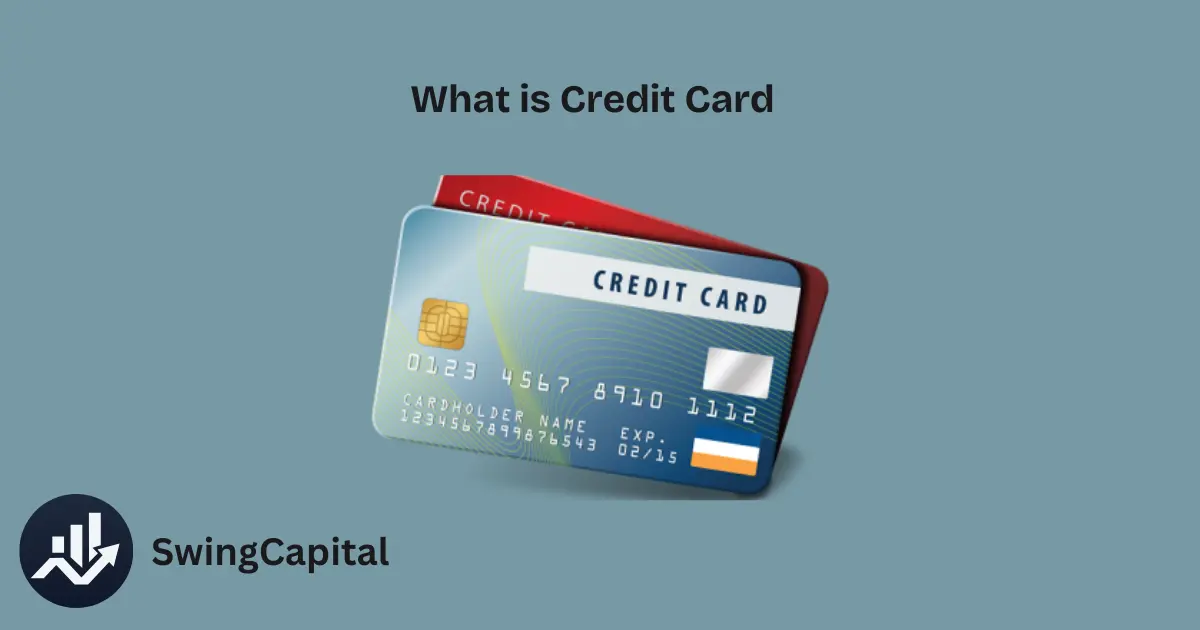Discover what a credit card is, how it works, its types, benefits, risks, and expert tips to use it wisely. A complete beginner’s guide to understanding credit cards and building a strong financial foundation.
Credit cards have become a central part of modern personal finance. From purchasing everyday essentials to booking international flights, these small plastic (or metal) cards offer convenience, security, and the power to manage your cash flow — when used responsibly.
In this blog post, we’ll walk you through everything you need to know about credit cards: what they are, how they work, types, benefits, risks, and best practices for using them.
What is a Credit Card?
A credit card is a financial tool issued by a bank or financial institution that allows you to borrow money to make purchases, up to a certain limit, known as the credit limit. You’re expected to repay the amount either in full or through monthly installments.
Unlike a debit card, which deducts money directly from your bank account, a credit card allows you to spend money you don’t yet have, making it a form of revolving credit.
🛠️ How Does a Credit Card Work?
Here's a simplified step-by-step explanation of how a credit card works:
- Card Issuance – You apply for a card based on your income and credit history. Once approved, you receive a card with a set credit limit.
- Purchases – Use the card to make purchases online or in-store. The bank pays the merchant on your behalf.
- Billing Cycle – Each month, the bank sends a credit card statement showing the total amount due, minimum payment, and due date.
- Repayment – You can pay:
- The full balance (recommended) — no interest charged.
- The minimum due — interest is charged on the remaining balance.
- Any amount between the minimum and full amount.
- Interest/Fees – If the full amount isn’t paid by the due date, you’re charged interest (APR) on the outstanding balance. Late fees may also apply.
🧾 Key Terms You Should Know
| Term | Meaning |
|---|---|
| Credit Limit | The maximum amount you can borrow using your card. |
| Billing Cycle | The period for which transactions are tracked, typically 30 days. |
| Due Date | The date by which payment must be made. |
| Minimum Payment | The least amount you must pay to avoid late fees. |
| APR (Annual Percentage Rate) | The interest rate applied to outstanding balances. |
| Grace Period | Time during which you can repay without interest (if paid in full). |
🧰 Types of Credit Cards
Credit cards come in different forms to meet various needs:
- Standard Credit Cards – Basic cards for general use.
- Rewards Cards – Earn points, cashback, or miles for each transaction.
- Secured Credit Cards – Backed by a deposit; ideal for building credit.
- Business Credit Cards – Designed for small business expenses and tracking.
- Student Credit Cards – Made for college students with limited income.
- Co-branded Cards – Partnered with retailers, airlines, etc., offering loyalty perks.
✅ Benefits of Using Credit Cards
- Build Credit Score – On-time payments improve your creditworthiness.
- Emergency Access to Funds – Helpful during cash shortages or medical needs.
- Rewards & Cashback – Earn on every purchase.
- Purchase Protection – Many cards offer insurance on theft, damage, or returns.
- Convenience & Security – Easy to use globally; fraud protection is standard.
⚠️ Risks of Credit Cards
While convenient, credit cards can be risky if misused:
- High Interest Rates – Carrying a balance leads to expensive interest charges.
- Debt Accumulation – Over-spending can spiral into long-term debt.
- Credit Score Damage – Late payments or maxing out your limit hurts your score.
- Fees – Late fees, annual fees, over-limit fees — can add up quickly.
💡 Best Practices for Credit Card Usage
- 🏦 Pay in Full – Always aim to pay your balance in full to avoid interest.
- 📅 Pay On Time – Set reminders to never miss a due date.
- 💸 Avoid Minimum Payments Only – It prolongs debt and increases interest.
- 📉 Keep Utilization Low – Ideally, use less than 30% of your limit.
- 🧾 Review Statements – Monitor for errors or fraudulent activity.
- 🚫 Avoid Cash Advances – They often have high fees and no grace period.
🧮 How Credit Cards Impact Your Credit Score
Your credit score is influenced by how you manage your card:
| Factor | Impact |
|---|---|
| Payment History | Most important — late/missed payments hurt your score. |
| Credit Utilization Ratio | High balances hurt; keep usage low. |
| Credit Age | Longer credit history = better score. |
| New Inquiries | Too many applications can lower score. |
| Credit Mix | Having both loans and credit cards can help. |
🔚 Final Thoughts
Credit cards, when used wisely, are powerful financial tools. They offer flexibility, rewards, and help you build a strong credit history. But if mismanaged, they can lead to financial stress and long-term debt.
The key is discipline: spend only what you can afford to repay and treat your credit card like a debit card with delayed billing. With that approach, you'll enjoy the many benefits without falling into common traps.
